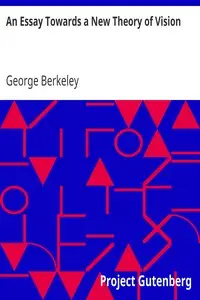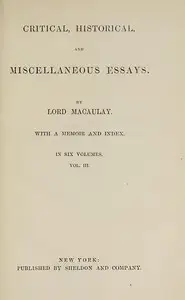"An Essay Towards a New Theory of Vision" by George Berkeley is a philosophical treatise written during the early 18th century. The work delves into the concepts of perception, specifically addressing how we perceive distance, magnitude, and the situation of objects through sight. Berkeley challenges existing theories on vision, particularly those that assert we perceive these aspects through mathematical angles and geometrical lines, instead proposing that our perceptions are rooted in experience and the ideas we associate with them. At the start of the essay, Berkeley outlines his intention to investigate how we perceive distance and magnitude, asserting that distance itself is not directly visible but rather inferred through experiential judgment. He discusses the relationship between our sensory perceptions—particularly how the sensations related to the positions of our eyes and the ensuing visual confusion contribute to our judgments on the size and distance of objects. By drawing on allegorical examples, such as the perspective of someone born blind, Berkeley illustrates that our understanding of objects' placement and identity is fundamentally experiential and not inherent in the act of seeing itself; rather, it is shaped by our interactions with tangible reality over time. (This is an automatically generated summary.)

An Essay Towards a New Theory of Vision
By George Berkeley
"An Essay Towards a New Theory of Vision" by George Berkeley is a philosophical treatise written during the early 18th century. The work delves into t...
Genres
Released
2003-12-01
Formats
epub3 (images)
mobi (images)
epub (images)
epub
mobi
Free Download
Overview
About the Author
George Berkeley – known as Bishop Berkeley – was an Anglo-Irish philosopher whose primary achievement was the advancement of a theory he called "immaterialism". This theory denies the existence of material substance and instead contends that familiar objects like tables and chairs are ideas perceived by the mind and, as a result, cannot exist without being perceived. Berkeley is also known for his critique of abstraction, an important premise in his argument for immaterialism.
Total Reviews
10.0k
Total reviews from Goodreads may change


















